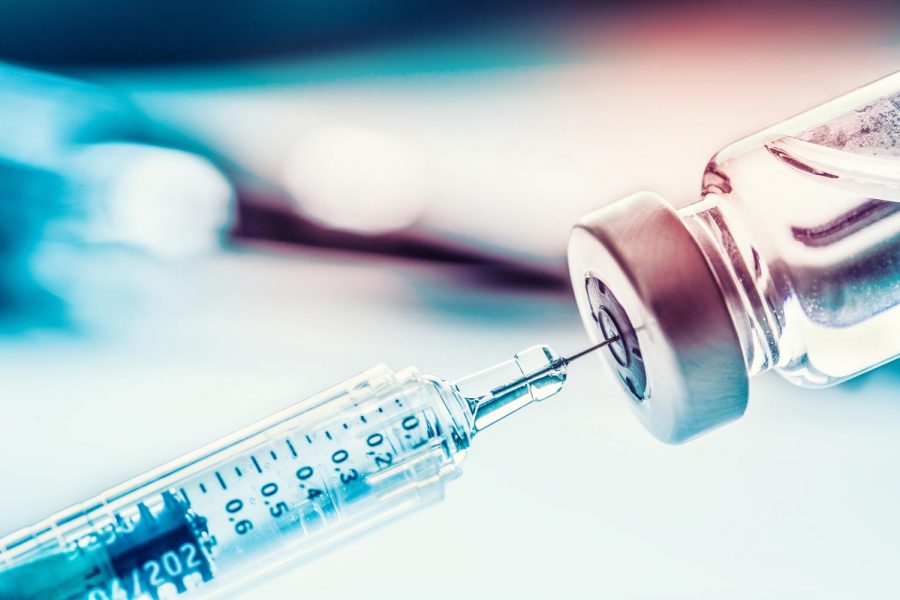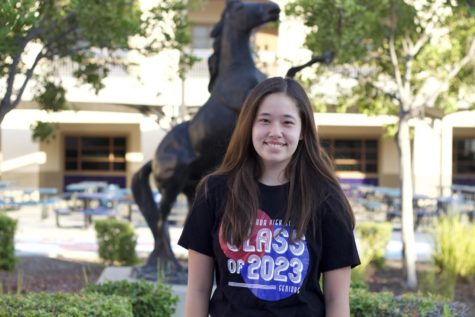Will a Vaccine be Enough?
Many people are relying on a vaccine to stop the spread of COVID-19, but a vaccine may not be enough to stop the spread.
November 17, 2020
As COVID-19 continues to spread throughout the United States without any signs of a full recovery in the near future, many people have set their hopes on a potential vaccine to stop the spread of the pandemic. Vaccines have been in development for the past several months, and we are now reaching a point where we can expect a vaccine to be released within the next couple of months. Even though this potential cure seems like it could be the end of all COVID-19 related issues, in reality, it is highly unlikely that the vaccine will be enough to stop the spread.
One factor that contributes to whether or not a vaccine is enough to stop the spread of COVID-19 is the efficiency of the vaccine. If a vaccine were to be 50% effective, that would mean that half of the people who received the vaccine could still get COVID-19. Despite this, Michael Ison, a professor at Northwestern University, stated that there is a chance that people who receive the vaccine will receive more minor symptoms. In order for a vaccine to truly be effective, Dr. Fauci would like for the vaccine to be at least 75% effective, but at the moment, Pfizer’s promising COVID-19 vaccine is believed to be 90% effective.
Another reason why a vaccine might not stop the spread of COVID-19 is that, according to Dr. Fauci, an early vaccine will only stop symptoms and not necessarily the spread. This means that even if the majority of the population chooses to receive the vaccine, it is likely that COVID-19 could become an annual epidemic like the flu. When the vaccine first comes out, only essential workers will have access to it, leaving the rest of the population vulnerable to the symptoms of COVID-19.
The most important reason that the vaccine will not be enough to stop the spread is that, according to USA Today, as many as two-thirds of the population is unwilling to take the vaccine. People are unwilling to take the vaccine for a number of reasons including their belief that people do not understand the virus enough to make a safe vaccine, their belief that the Trump administration rushed the creation of a vaccine, and even just because people do not feel comfortable being a test subject. Although there have been tests, there is no way to determine the long-term effects the vaccine may have, so many Americans are uncertain if they would be willing to receive the vaccine. Piper Guyton (10) says that “even though a vaccine will likely help stop the spread of COVID-19, [she is] not sure if [she] feels safe getting it right away.”
While people will likely continue to hope for an effective vaccine, for now, the best way to stop the spread of COVID-19 is to continue to social distance, wear masks, and limit the number of interactions with people outside of direct family. A vaccine may help solve some problems regarding the pandemic, but if people wish for a recovery in the near future, people must do their part in stopping the spread.







































Sarah Lemos • Dec 2, 2020 at 1:24 PM
I like the points you’ve made. I think there will be more efforts needed to hopefully to return back to normal. Until then, we should all follow the rules and stay safe!!
Paige Reddick • Nov 20, 2020 at 12:49 PM
This article is extremely informative! You educated me immensely on the realties of this vaccine and your explanations were incredibly thorough and descriptive!
Suhani Bhanvadia • Nov 17, 2020 at 3:07 PM
This article was super interesting! I definitely agree that we need to do more than just rely on the vaccine. However, not to be negative but I also think people are getting sick of quarantine and we will not see a lot of progress if people start going out like normal before it’s safe.